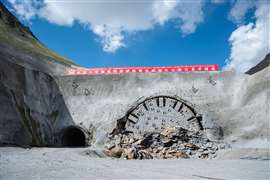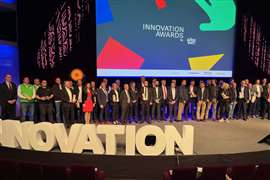FIEC backs circular economy
25 January 2016

The European Commission’s Circular Economy Action Plan has been given a warm reception by FIEC (the European Construction Industry Federation), following the release of the plan in December.
Welcoming the proposals on waste, standards for secondary raw materials and reliable data contained in the action plan, FIEC vice president Kjetil Tonning said, “FIEC has always supported the concept of the circular economy and supports the action plan, which should help to address resistance in the market to use recycled and reused raw materials.
“The construction industry is innovative and contractors already propose the use of secondary raw materials, but clients have to agree to accept them,” he added.
FIEC believes that the conditions have to be right for a major shift in the way materials are sourced and used.
In particular, it feels that sorting and recycling facilities must be available in close proximity to construction sites. It said these facilities must be able to deal with large quantities of potentially recyclable and reusable building materials, generated from building renovation and demolition projects.
In addition, the cost of processing such materials should not outweigh the environmental benefits, and care must be taken to identify and dispose safely of dangerous substances, to reduce the risk to human health, it said.
Contractors can do their bit, said FIEC, but material producers also have a huge role to play.
Tonning said, “We expect construction material producers to manufacture, in future, with the lifecycle of their products in mind, including, of course, end-of-life and recycling.
“In an ideal world, the existence of building materials that end up as waste should be reduced to zero. Taking a pragmatic view, we expect that there will always be waste, but small steps can already be taken – for example, to ensure that packaging is reduced to a minimum and that toxic substances are eliminated totally from new materials.”
BUILDING INFORMATION MODELLING
A huge boost for the circular economy could be building information modelling (BIM), which is already extensively used in certain countries.
FIEC said that BIM brought together all parties in the construction value chain and that it could, in future, significantly improve building deconstruction in terms of environmental impact, and would ensure that renovation and maintenance were undertaken in a way that would support the objectives of the circular economy.
FIEC’s Annual Conference in 2016 will be on the subject of BIM.






